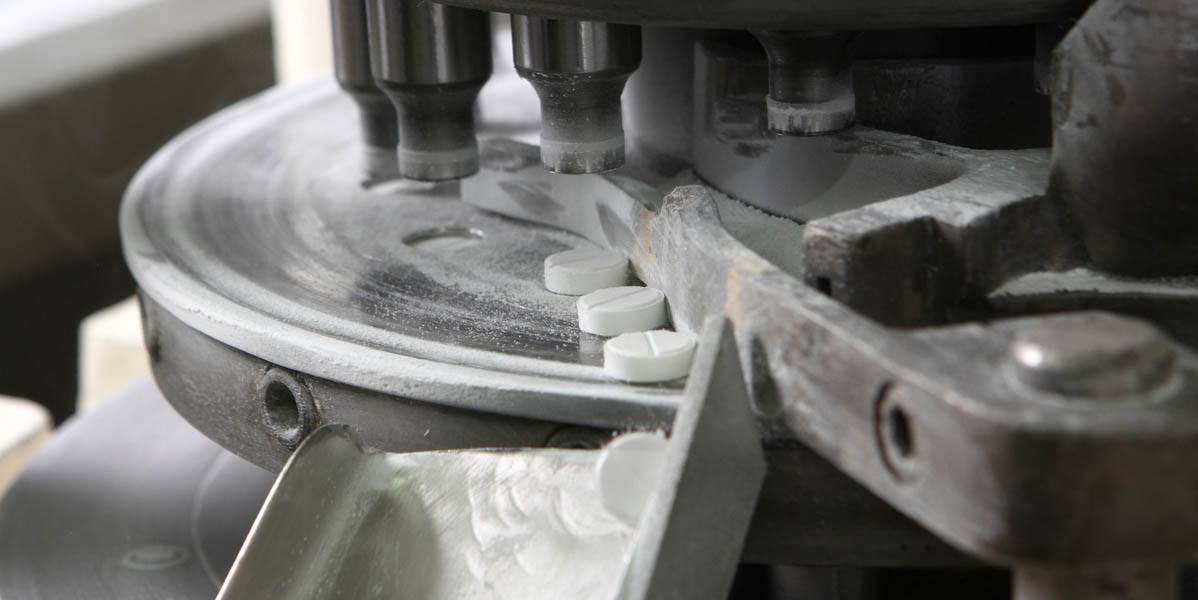
University of Leeds researchers are part of a project to transform the UK’s pharmaceutical industry by introducing new digital design processes.
The £20.4 million ADDoPT (Advanced Digital Design of Pharmaceutical Therapeutics) project is a major four-year collaboration between the Government, industry and universities.
It is expected to reduce the development time and cost of innovative medicines and improve the competitiveness of the UK’s pharmaceuticals sector.
Professor Kevin Roberts, Brotherton Professor of Chemical Engineering at the University of Leeds, who will lead the Leeds team, said: “The days of the blockbuster drug are numbered. Many medicines that are coming through are more targeted and we need a streamlined development process to get them to market.
“Instead of doing a lot of very expensive trial and error in the lab and in manufacturing design, ADDoPT will be developing the use of computer modelling and design tools to help plan the design and manufacturing process from raw materials through formulation, manufacturing and quality testing. The idea is to identify and eliminate non-viable drugs as early as possible in the process and concentrate time and resources on the right things.”
Professor Roberts added: “The University of Leeds is committed to applying world leading research to real-world problems. This project brings together two strategic research areas for the University—in high value engineering and health—and we expect to have a major economic impact.”
Alison Clough, Acting Chief Executive of the Association of the British Pharmaceutical Industry (ABPI), said: “We welcome the Government’s commitment to continuing to develop the UK’s life sciences sector. This project will help to put the UK in a position to make innovative medicines available to UK patients more quickly by futureproofing our advanced pharmaceutical manufacturing sector. By reducing the risks associated with the manufacture of medicines we can provide the UK with a competitive advantage in a globally significant sector.”
Partners include the major pharmaceutical companies Pfizer, GlaxoSmithKline, AstraZeneca and Bristol-Myers Squibb.
The University of Leeds, University of Cambridge, the Centre for Innovative Manufacturing in Continuous Manufacturing and Crystallisation (CMAC) at the University of Strathclyde, the Cambridge Crystallographic Data Centre and the STFC Hartree Centre are the leading academic contributors. Leeds’ team will receive £4.5 million funding.
The project is coordinated by Process Systems Enterprise Ltd, a supplier of advanced process modelling technology, and is part funded under the Government’s Advanced Manufacturing Supply Chain Initiative.
It is supported by the Medicines Manufacturing Industry Partnership (MMIP), which was jointly established by the Association of the British Pharmaceutical Industry (ABPI) and the BioIndustry Association (BIA), to ensure UK competitiveness in medicines manufacturing. The process engineering firm Perceptive Engineering Ltd and the process design specialist Britest Ltd will also play key roles in the project.
Project Lead Sean Bermingham of Process Systems Enterprise said: “By building on UK excellence in process modelling, optimisation and control, we can give UK pharmaceutical development and manufacturing a genuine competitive advantage in this globally significant sector.”
Further information
Professor Kevin Roberts is available for interview.
Contact: Chris Bunting, Press Officer, University of Leeds, on 0113 343 2049 or email c.j.bunting@leeds.ac.uk.
For information about the ADDoPT project, contact John Henderson at Britest Ltd. on 07484 129 221 or email John.Henderson@britest.co.uk.